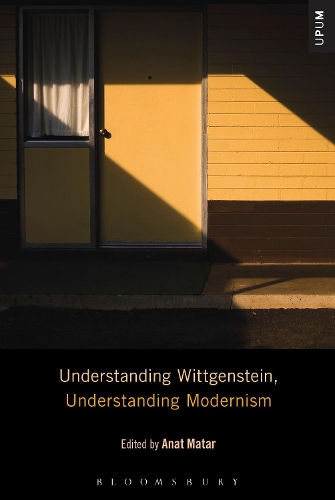
Understanding Wittgenstein, Understanding Modernism
(Hardback)
Available Formats
Publishing Details
Understanding Wittgenstein, Understanding Modernism
By (Author) Anat Matar
Bloomsbury Publishing PLC
Bloomsbury Academic USA
26th January 2017
United States
Classifications
Tertiary Education
Non Fiction
Literary studies: general
Literary theory
146.4
Physical Properties
Hardback
288
Width 152mm, Height 229mm
558g
Description
In the last half-century Ludwig Wittgenstein's relevance beyond analytic philosophy, to continental philosophy, to cultural studies, and to the arts has been widely acknowledged. Wittgensteins Tractatus Logico-Philosophicus was published in 1922 the annus mirabilis of modernism alongside Joyces Ulysses, Eliots The Waste Land, Mansfields The Garden Party and Woolfs Jacobs Room. Bertolt Brechts first play to be produced, Drums in the Night, was first staged in 1922, as was Jean Cocteaus Antigone, with settings by Pablo Picasso and music by Arthur Honegger. In different ways, all these modernist landmarks dealt with the crisis of representation and the demise of eternal metaphysical and ethical truths. Wittgensteins Tractatus can be read as defining, expressing and reacting to this crisis. In his later philosophy, Wittgenstein adopted a novel philosophical attitude, sensitive to the ordinary uses of language as well as to the unnoticed dogmas they may betray. If the gist of modernism is self-reflection and attention to the way form expresses content, then Wittgensteins later ideas in their fragmented form as well as their ear-opening contents deliver it most precisely. Understanding Wittgenstein, Understanding Modernism shows Wittgensteins work, both early and late, to be closely linked to the modernist Geist that prevailed during his lifetime. Yet it would be wrong to argue that Wittgenstein was a modernist tout court. For Wittgenstein, as well as for modernist art, understanding is not gained by such straightforward statements. It needs time, hesitation, a variety of articulations, the refusal of tempting solutions, and perhaps even a sense of defeat. It is such a vision of the linkage between Wittgenstein and modernism that guides the present volume.
Reviews
This original, high-caliber collection explores the grammar of twentieth century 'modernism' from James to Schoenberg to Greenberg, using Wittgenstein as a lens. The themes are timely and deep: radical self-criticism as method; inevitable tensions facing phenomenological attentiveness to form in logic, psychology, and the 'ordinary'; philosophys relation to literature, poetry, theatre and music; mysticism, pessimism, and certainty. * Juliet Floyd, Professor of Philosophy, Boston University, USA *
Analytic purists, with whom he has been associated, will be sceptical about drawing connections between Wittgenstein's philosophy and 20th century philosophy in general and the artistic modernism of his time. From diverse perspectives informed both by philosophy and the arts, contributors to this volume refute that scepticism. They elucidate the tantalising relationships that arise from Wittgenstein's radical self-criticism, his concern with language and the arts, and the intensified development of the Enlightenment project that modernism represents. * Andy Hamilton, Professor of Philosophy, Durham University, UK *
Author Bio
Anat Matar is Senior Lecturer of Philosophy at Tel Aviv University, Israel. She is the author of From Dummetts Philosophical Perspective (1997) and Modernism and the Language of Philosophy (2006), and co-editor (with Anat Biletzki) of The Story of Analytic Philosophy: Plot and Heroes (1998) and (with Abeer Baker) of Threat: Palestinian Political Prisoners in Israel (2011).
